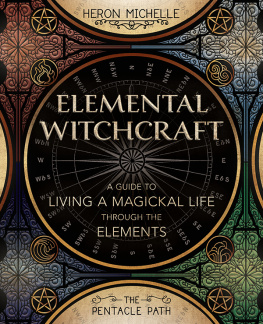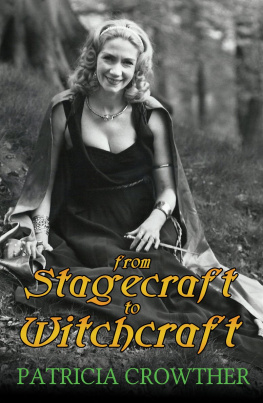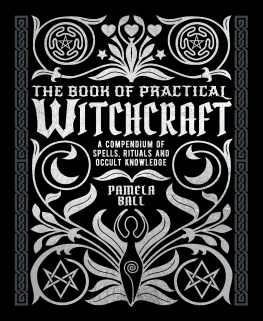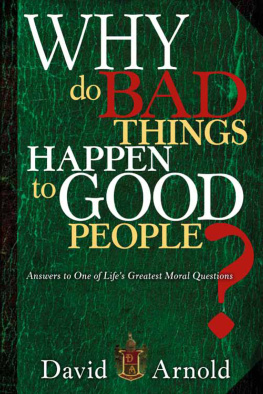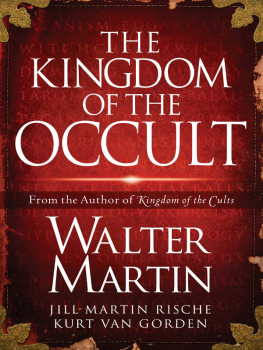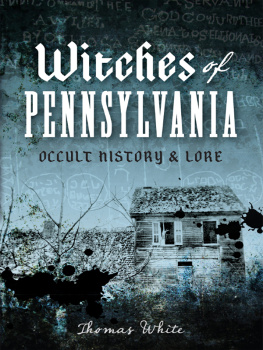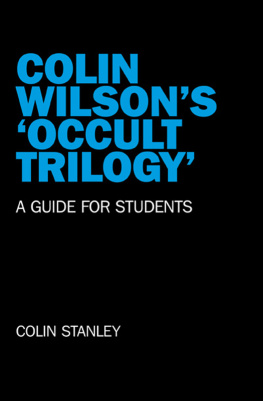Michelle Arnold - 20 Answers - Witchcraft & The Occult
Here you can read online Michelle Arnold - 20 Answers - Witchcraft & The Occult full text of the book (entire story) in english for free. Download pdf and epub, get meaning, cover and reviews about this ebook. year: 2017, publisher: Catholic Answers Press, genre: Religion. Description of the work, (preface) as well as reviews are available. Best literature library LitArk.com created for fans of good reading and offers a wide selection of genres:
Romance novel
Science fiction
Adventure
Detective
Science
History
Home and family
Prose
Art
Politics
Computer
Non-fiction
Religion
Business
Children
Humor
Choose a favorite category and find really read worthwhile books. Enjoy immersion in the world of imagination, feel the emotions of the characters or learn something new for yourself, make an fascinating discovery.

- Book:20 Answers - Witchcraft & The Occult
- Author:
- Publisher:Catholic Answers Press
- Genre:
- Year:2017
- Rating:5 / 5
- Favourites:Add to favourites
- Your mark:
- 100
- 1
- 2
- 3
- 4
- 5
20 Answers - Witchcraft & The Occult: summary, description and annotation
We offer to read an annotation, description, summary or preface (depends on what the author of the book "20 Answers - Witchcraft & The Occult" wrote himself). If you haven't found the necessary information about the book — write in the comments, we will try to find it.
20 Answers - Witchcraft & The Occult — read online for free the complete book (whole text) full work
Below is the text of the book, divided by pages. System saving the place of the last page read, allows you to conveniently read the book "20 Answers - Witchcraft & The Occult" online for free, without having to search again every time where you left off. Put a bookmark, and you can go to the page where you finished reading at any time.
Font size:
Interval:
Bookmark:
20 Answers
Witchcraft & the Occult
Michelle Arnold
20 Answers: Witchcraft & the Occult
Michelle Arnold
2017 Catholic Answers
All rights reserved. Except for quotations, no part of this book may be reproduced or transmitted in any form or by any means, electronic or mechanical, including photocopying, recording, uploading to the Internet, or by any information storage and retrieval system, without written permission from the publisher.
Published by Catholic Answers, Inc.
2020 Gillespie Way
El Cajon, California 92020
1-888-291-8000 orders
619-387-0042 fax
catholic.com
Printed in the United States of America
978-1-68357-043-1
978-1-68357-044-8 Kindle
978-1-68357-045-5 ePub
Table of Contents
Interest in witchcraft and occult practices is on the rise in our culture. Movies and TV shows feature witches, ghosts, vampires, and werewolves. Bookstores are filled not just with depictions of fantasy worlds in which these creatures exist, but also with how-to manuals for casting spells and discovering your inner goddess. There are groups on social media for practitioners of the occult and conventions around the country for devotees.
But do you know what witches actually believe and how they practice it? Do you know what to do if your child professes an interest in witchcraft or starts to play with a Ouija board or tarot cards? Do you know what the Church teaches on witchcraft and the occult? Can you answer charges that the Church burned witches during the Middle Ages?
This booklet introduces you to what witches believe and to some of their common practices. It also delves into related topics, such as yoga, the Ouija board, and the work of psychics.
Witchcraft and occult activity have been around for hundreds of yearspossibly thousands. When people live in uncertain times, they begin to worry that God does not hear their prayers, and so they seek other ways of gaining the knowledge they need to take control of their lives. Recourse to witchcraft and the occult is, primarily, a sign of despair of the goodness of God.
In responding to the claims of witchcraft and the occult, it is important not to give in to fear, or to attribute to practitioners more power than they have. It is also important to remember that they are ordinary people leading ordinary lives, and, in many cases, that they hope to find in these practices the means to make the world a better place. It is our task, as Christians, to be ready with the information and assistance that can help them find a safe path to the peace and union with the Divine that they crave.
Witchcraft is a methodology that includes, among other things, casting spells, divining hidden events, and invoking and worshiping gods and goddesses.
Casting spells is the common means by which a person practices sorcery. Generally speaking, someone who engages in sorcery will seek to create a change in his personal circumstances, in others, or in the world around him through his own power.
Deborah Blake, a Wiccan high priestess who leads a coven and teaches witchcraft to others, explains the act of magic in her attempt to help readers understand that they dont need expensive tools to practice it:
Witches believe in magick: the power to change the world around us through the focused application of will and energy. Without this belief, our words would have no power, and that wand would simply be a piece of wood.
With belief, however, comes... ability to tap in to the energy of the universe and manipulate realitynot necessarily in drastic and dramatic ways (although that can happen, too), but mostly by giving the world a nudge in the right direction.
Unlike sacramentals (such as holy water or rosary beads), which Catholics use with the Faith and hope that God may freely choose to act through the objects to give us certain graces, sorcery involves a witch using various tools to channel energy and will to affect the desired change. It is, essentially, an attempt to harness spiritual power for ones own purposes.
Divining hidden events involves seeking knowledge of past, present, or future events, either through ones own power or by invoking pagan gods or goddesses. Witchcraft author Diane Smith states,
Divination is an attempt to receive unknown information about the past, present, or future. The process requires two steps. A person:
1. uses a tool or method (tarot cards, for example) to produce symbols and
2. interprets the symbols in a way that is meaningful to his life.
Tarot cards, Smiths example, are one means witches use for divination. Other divination tools include runes, mirrors or glass balls, reflective water, astrology charts, tea leaves, and the palm of the hand. The common principle behind all of these methods is to find patterns and then to interpret from those patterns the information the practitioner seeks.
Invoking and worshiping gods and goddesses involves identifying pagan deities to whom one feels attracted and then venerating them and seeking their aid. It is common for a witch to have a personal pantheon of deities he invokes and worships, many of the pantheons being based on ancient European mythologies (e.g., Greek, Roman, Celtic, Norse). Depending on a witchs ethnic background or personal preferences, he might also invoke deities from Africa, Asia, or the indigenous tribes of the Americas.
The interactions practitioners have with these deities are not merely fantasy or imaginary play. Some report vivid dreams or trances in which they are brought into contact with the spirits they have been invoking or worshiping. For example, high priestess Phyllis Curott tells the story of someone she knew (witches are extremely circumspect about sharing the identities of fellow practitioners, and so Curott is not specific as to the identity of this person) who once dreamed of being prey of a monstrous creature. Ultimately, in the dream, this person was captured by the creature. Currott reports that her friend awoke deeply transformed by the dream because he believed that the creature felt tremendous love for him.
Wicca is the name given in the 1950s to a subset of witchcraft by Gerald Gardner, widely considered the father of modern witchcraft. Some claim that the word means wise, but it is derived from the Old English word for witch, the origins of which are unclear. Marian Singer, a teacher and lecturer on issues relating to witchcraft and Wicca, explains the difference between Wicca and witchcraft this way: Witchcraft implies a methodology... whereas the word Wiccan refers to a person who has adopted a specific religious phil osophy.
Because witchcraft is often defined as a methodology and Wicca as a religious ideology, a person who considers himself a witch but not a Wiccan may still participate in many of the same practices as a Wiccan, such as casting spells, divining the future, and venerating a personal pantheon of gods and goddesses.
As a religious philosophy, Wicca owes its start to Gardner (18841964), a British civil servant who started promoting his version of witchcraft after the repeal of the British Witchcraft Act of 1736. His followers quickly started splitting off to start their own covens, eventually spreading neo-pagan witchcraft throughout Great Britain and the United States.
Although Wiccans are highly individualistic in their belief and practice, leading to nearly as many understandings of Wicca as there are Wiccans, there are several major strands of Wicca that draw followings. These include the Gardnerian, Alexandrian, and Georgian forms of Wicca, which are named for their founders. Seax Wicca patterns itself on Saxon folklore. Black Forest Wicca is a hodgepodge of Wiccan traditions. A feminist branch of Wicca is known as Dianic Wicca and is named for the Roman goddess Diana.
Font size:
Interval:
Bookmark:
Similar books «20 Answers - Witchcraft & The Occult»
Look at similar books to 20 Answers - Witchcraft & The Occult. We have selected literature similar in name and meaning in the hope of providing readers with more options to find new, interesting, not yet read works.
Discussion, reviews of the book 20 Answers - Witchcraft & The Occult and just readers' own opinions. Leave your comments, write what you think about the work, its meaning or the main characters. Specify what exactly you liked and what you didn't like, and why you think so.

